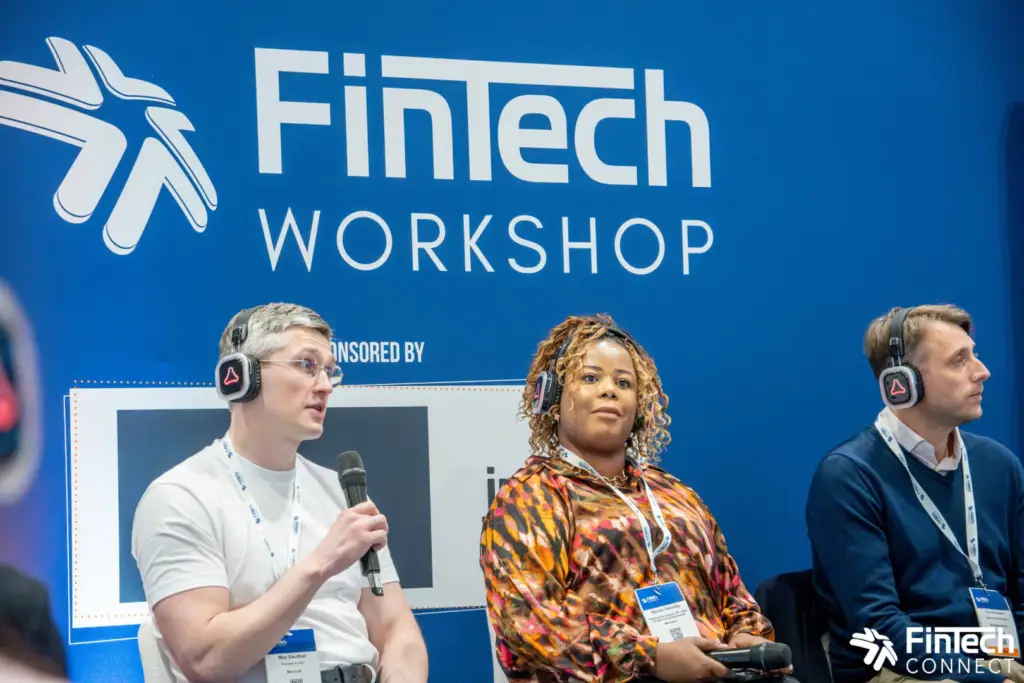In the ever-evolving landscape of fintech, securing the right funding is pivotal for startups aiming to scale beyond their initial Series A investments.
At the recent Fintech Connect event, we invited industry experts to delve into alternative funding avenues available in the UK, offering invaluable insights for high-growth startups.
Here are the key takeaways from the discussion, providing practical and pragmatic guidance for founders seeking to optimise their fundraising strategies.

Understanding Alternative Funding Beyond Series A
Alex Reed, a founding partner of Mountside Ventures, set the stage by emphasising the importance of exploring funding options beyond traditional venture capital (VC) avenues. Mountside Ventures has successfully raised over £160 million for companies in the past three years, highlighting the growing trend towards diversified funding sources.
“We’ve seen growing demand for alternative sources of capital from founders wanting to avoid priced rounds during a relatively challenging fundraising environment” Alex explained, underscoring the shift from equity-centric funding to more varied financial instruments.
Alex Reed, Founding Partner, Mountside Ventures

“We support businesses who are just scaling up and make the process seamless,” Rachel explained.
Rachel Tshondo, Relationship Director VP - High Growth and Entrepreneurs | National Lead on FinTech, Barclays
Debt Financing and Lending: A Viable Option
Rachel Tshondo from Barclays provided a comprehensive overview of working capital funding, a critical component for startups in their scaling phase. She highlighted that while traditional banks often assess debt based on stringent criteria, Barclays adopts a more flexible approach.
Key Insights on Debt Financing:
Non-Dilutive Options:
Barclays emphasizes non-dilutive borrowing solutions, which are crucial for startups wary of equity dilution.
Asset and Invoice Financing:
Depending on the funding purpose, startups can access asset finance for purchasing equipment or invoice financing for improving cash flow.
Government Guarantee Schemes:
These schemes provide additional security, especially for startups that have already raised some equity funding.
Rachel further elaborated on the structuring of working capital loans, advising startups to;
“keep the borrowing period short, typically between two to three years, and demonstrate a strong growth trajectory to ensure repayment.”
Rachel Tshondo, Relationship Director VP - High Growth and Entrepreneurs | National Lead on FinTech, Barclays

Venture Debt: Balancing Risk and Flexibility
Max Gauttsel, founder of Monivolt, shed light on the nuances of venture debt. He cautioned that despite the availability of capital, the conversion rate for securing venture debt remains low.
“An average debt fund looks at around two to three hundred deals per year and only underwrite five to six,” Max revealed, emphasizing the competitive nature of this funding type.
Max Gauttsel, Founder, Monivolt
Practical Tips for Securing Venture Debt:
Be Prepared:
Startups must present a well-structured business plan, comprehensive financial models, and a clear understanding of their capital needs.
Avoid Desperation:
Max advised against aggressive pitching, noting that “desperation signals can deter potential lenders.”
Understand Terms:
Unlike equity investors seeking high returns, venture debt providers prioritize the ability to service debt and sustain growth.
Alex added, “For venture debt, we look at metrics like consistency of recurring revenue, EBITDA positivity and equity raised. We see a 3:1 equity to debt ratio - typically you need to have raised around £6 million in equity, to be able to access £2 million in debt” highlighting the importance of a solid equity foundation.
Alex Reed, Founding Partner, Mountside Ventures
Revenue-Based Financing: Catering to Early-Stage Startups
Revenue-based financing (RBF) is gaining traction, especially among early-stage companies with recurring revenue models. Max pointed out that RBF providers like Liquidity Group and Capchase look for startups with stable revenue growth and low churn rates.
“You need to have very good clients and recurring revenue,” he emphasised.
Max Gauttsel, Founder, Monivolt
Key Considerations for RBF:
Minimum Revenue Threshold:
Typically, a minimum of £20k Monthly Recurring Revenue (MRR) is required.
Loan Multiples:
Startups can secure loans ranging from three to six times their monthly revenues.
Sustainability:
RBF offers flexibility, allowing repayments to scale with revenue growth, which is ideal for startups in the growth phase.

Government Grants: Opportunities and Challenges
Government grants remain a non-dilutive funding source, but they come with their own set of challenges.
Tom Nicolson from Bonham & Brook highlighted the time-consuming nature of grant applications.
“You have to be prepared to put a lot of hours into it and also be ready for rejection,” Tom warned.
Tom Nicolson, Bonham & Brook
Navigating Grants
Specialised Grants:
Focus on grants that align closely with your business’s niche. For instance, a fintech company developing AI might have higher chances with specific Innovate UK grants.
Network with Philanthropists:
Tom suggested building relationships with philanthropist organisations as an alternative pathway to grants.
Horizon Europe:
Post-Brexit, Horizon Europe offers up to £3.5 million in funding, but the application process remains highly competitive and time-intensive.
Tom also mentioned recent changes, such as the reduction of the smart grant funding pot from £25 million to £15 million, reflecting the dynamic nature of government funding landscapes.

Strategic Approaches to Securing Alternative Funding
As the panel discussion progressed, the experts shared actionable advice for founders navigating the complex funding ecosystem.
Max's advice:
“First of all, think about the results—what do you want to achieve and how. Play the game smart. Securing capital is a business in itself.”Max Gauttsel, Founder, Monivolt
Rachel’s Recommendations:
“Have a clear growth plan and be specific about what you need the funds for. Explore non-dilutive financing options and ensure your business meets the credit criteria. Building a strong relationship with your bank can open doors to tailored financial solutions.”Alex Reed, Co-founding Partner, Mountside Ventures
Tom’s Insights:
“Time is your most valuable commodity. Before diving into grants or R&D tax credits, consult with reputable advisors to assess fit and feasibility. This approach can save you from wasting valuable time on unsuitable applications.”Alex Reed, Co-founding Partner, Mountside Ventures
Alex’s Perspective:
“Warm introductions trump cold outreach. Engage with potential investors through meaningful interactions across multiple platforms like LinkedIn and X, and showcase your company’s unique value proposition. Alternatively, engage with someone like us who can introduce you to the right people within the most relevant funds for your business”Alex Reed, Co-founding Partner, Mountside Ventures

Mastering the Art of Investor Outreach
The discussion also delved into effective strategies for approaching angels, philanthropists, and family offices. Both Max and Tom emphasised the importance of personalised and well-researched outreach over generic, cold emails.
Practical Outreach Strategies:
Cold Emails vs. Warm Introductions:
Leverage your network to gain introductions to potential investors. As Max pointed out,
"Family offices only do business with people they know. Cold emails to investors have a one out of a thousand success rate.”
Max Gauttsel, Founder, Monivolt
Alex highlighted the low success rate of cold emails, stating,
“The majority of the deals that are done by VCs are through people they know already within their networks.”
Alex Reed, Co-founding Partner, Mountside Ventures
Personalised Communication:
Tailor your messages to reflect genuine interest and understanding of the investor’s focus areas. Tom likened it to attending a garden party:
“Imagine you’re at a garden party with a hundred investors. Your opening line can make or break your conversation.”
Tom Nicolson, Bonham & Brook
Alex and Rachel discussed the importance of understanding the generation of family offices to tailor investment pitches accordingly.
“First-generation family offices may be more open to investing in early-stage startups, while third-generation are typically more conservative,”
Alex Reed, Co-founding Partner, Mountside Ventures
Engage Across Platforms:
Actively participate in discussions, comment on posts, and share relevant content to build visibility and rapport.
“Engaging with content on platforms like LinkedIn and X can significantly increase your chances of getting noticed.”
Alex Reed, Co-founding Partner, Mountside Ventures
Utilise Tools Like Barclays Demo Directory:
Rachel introduced the Barclays Demo Directory as an effective tool for connecting with VCs.
“This directory vets your deck and opens it up to investors looking to invest in your business,” she explained, offering a practical solution for startups struggling with traditional outreach methods.”
Rachel Tshondo, Relationship Director VP - High Growth and Entrepreneurs | National Lead on FinTech, Barclays
“The days of growth at all costs are over. Investors now prioritise efficient growth”
Alex Reed, Co-founding Partner, Mountside Ventures
Conclusion: Embracing a Multi-Faceted Funding Strategy
The panel really helped underscore that alternative funding is not a one-size-fits-all solution. Startups must assess their unique needs, growth trajectories, and readiness to engage with different funding sources. By leveraging debt financing, revenue-based financing, government grants, and strategic investor outreach, high-growth startups can navigate the funding landscape with confidence and agility. Preparation is paramount.
As Alex Reed aptly put it, the key to successful fundraising lies in understanding the diverse options available and aligning them with your business’s strategic goals. By adopting a thoughtful and informed approach, founders can secure the capital needed to propel their fintech to new heights.
– ENDS –
For more insights and expert advice on fintech funding strategies, keep an eye on our upcoming sessions.
To learn more about FinTech Connect, visit: https://www.alphaevents.com/events-fintech-connect-london

